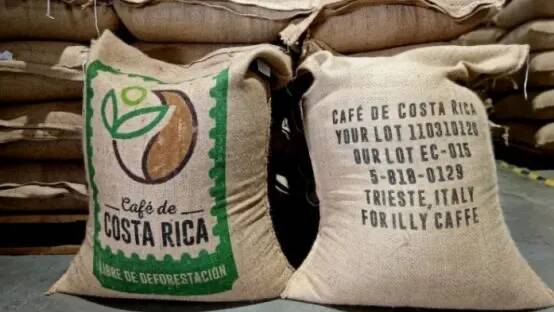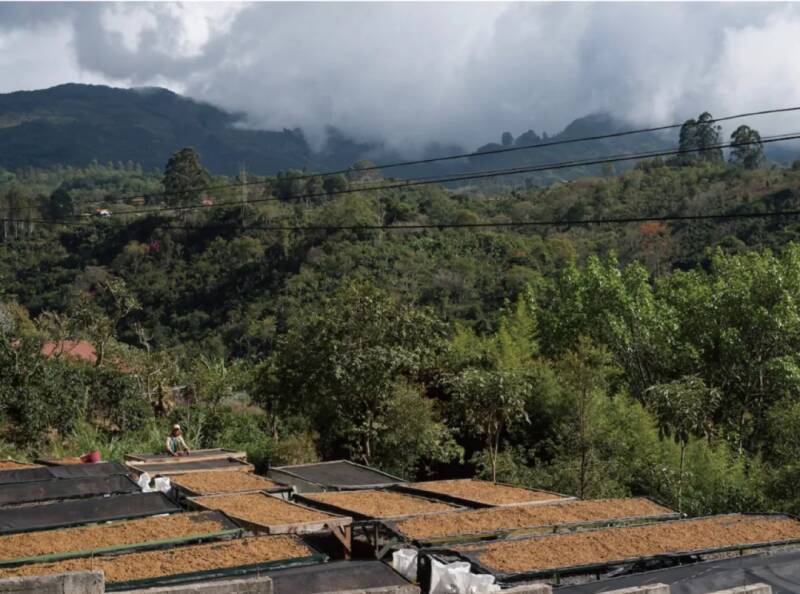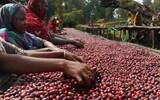Costa Rica launched the first batch of "non-deforestation coffee" to cater to the EU market.
Recently, according to Costa Rica elmundo, Costa Rica launched the first "deforestation free coffee", the batch of coffee beans will be harvested after December 2020, to ensure that no deforestation in order to expand the planting area, can meet the EU EUDR requirements, and the batch of coffee beans have been sold and will be shipped to Italy.
The "Deforestation Free Coffee"is part of a pilot bean project promoted by the United Nations Development Programme (UNDP) and the Costa Rican Coffee Association (ICAFE). The batch consists of 275 bags containing 60 kg of coffee beans, produced by producers in Tarrazú.

In June of this year, the European Union issued its first Zero Deforestation Act, also known as the EU Deforestation Regulation (EUDR), which stipulates that any individual or business can not sell products related to deforestation in the EU market, including coffee and cocoa. The bill requires operators to conduct due diligence on their products, trace the origin of the goods they sell to determine they do not involve deforestation or cause forest degradation, or face penalties ranging from fines, restrictions or bans on exports.
Costa Rica's first non-deforestation coffee exports, Costa Rica's Ministry of Environment and Energy Deputy Minister of Strategic Management said this is an example of climate change adaptation, if Costa Rica does not invest in climate adaptation, will lose market competitiveness, after all, Costa Rica coffee exports are mainly for the United States and EU countries, of which coffee exports to the EU accounted for 38.4% of total exports.

In addition, the pilot project leader said that the collaboration with the Los Santos region of Costa Rica was due to the fact that the region produced more coffee in Costa Rica, and the collaboration with the Taraju Cooperative was due to the fact that it was the country's largest coffee growers 'cooperative with more than 4,500 producers.
The cooperation is one of Costa Rica's key development projects, due to the country's current coffee industry setbacks, according to the Costa Rican Coffee Institute (ICAFE) earlier said that due to bad weather has been a shortage of labor, Costa Rica coffee production in 2023/24 will be reduced by 13%, while exports will also be reduced. There is also strong supply in other Central American countries, such as Honduras, Guatemala and Peru, where coffee of the same quality can be purchased at lower prices. To improve Costa Rica's competitiveness, it needs to respond to market changes, so this cooperation is very beneficial to Costa Rica's coffee industry.
Important Notice :
前街咖啡 FrontStreet Coffee has moved to new addredd:
FrontStreet Coffee Address: 315,Donghua East Road,GuangZhou
Tel:020 38364473
- Prev

Ethiopian Coffee Bean | introduction of Cochel Coffee beans in Yega Xuefei producing area
Ethiopian coffee is well-known in the global coffee market, coffee trees also originated in this country, is recognized as the birthplace of coffee. The country has numerous native varieties of coffee, and the name "coffee" comes from the Kaffa forest in southwestern Ethiopia. Coffee can be found in Ethiopia
- Next

Find another way out? Seesaw began to join in.
▲ Click to follow | Daily boutique Coffee Culture Magazine Coffee Workshop Seesaw, one of the domestic boutique coffees, seems to be in a state of "reverse water" in the past six months, falling into a storm of shop closure at the end of last year, and the closure of stores across the country worried loyal users so much that brand founder Wu Xiaomei accepted the adoption at the beginning of the year.
Related
- What grade does Jamaica Blue Mountain No. 1 coffee belong to and how to drink it better? What is the highest grade of Blue Mountain coffee for coffee aristocrats?
- What are the flavor characteristics of the world-famous coffee Blue Mountain No. 1 Golden Mantelin? What are the characteristics of deep-roasted bitter coffee?
- Can I make coffee a second time in an Italian hand-brewed mocha pot? Why can't coffee be brewed several times like tea leaves?
- Hand-brewed coffee flows with a knife and a tornado. How to brew it? What is the proportion of grinding water and water temperature divided into?
- What is the difference between Indonesian Sumatra Mantinin coffee and gold Mantinin? How to distinguish between real and fake golden Mantelin coffee?
- What does bypass mean in coffee? Why can hand-brewed coffee and water make it better?
- Unexpected! Ruixing Telunsu lattes use a smoothie machine to foam milk?!
- % Arabia's first store in Henan opens into the village?! Netizen: Thought it was P's
- Does an authentic standard mocha coffee recipe use chocolate sauce or powder? Mocha Latte/Dirty Coffee/Salty Mocha Coffee Recipe Share!
- What is the difference between Vietnam egg coffee and Norway egg coffee? Hand-brewed single product coffee filter paper filter cloth filter flat solution!

